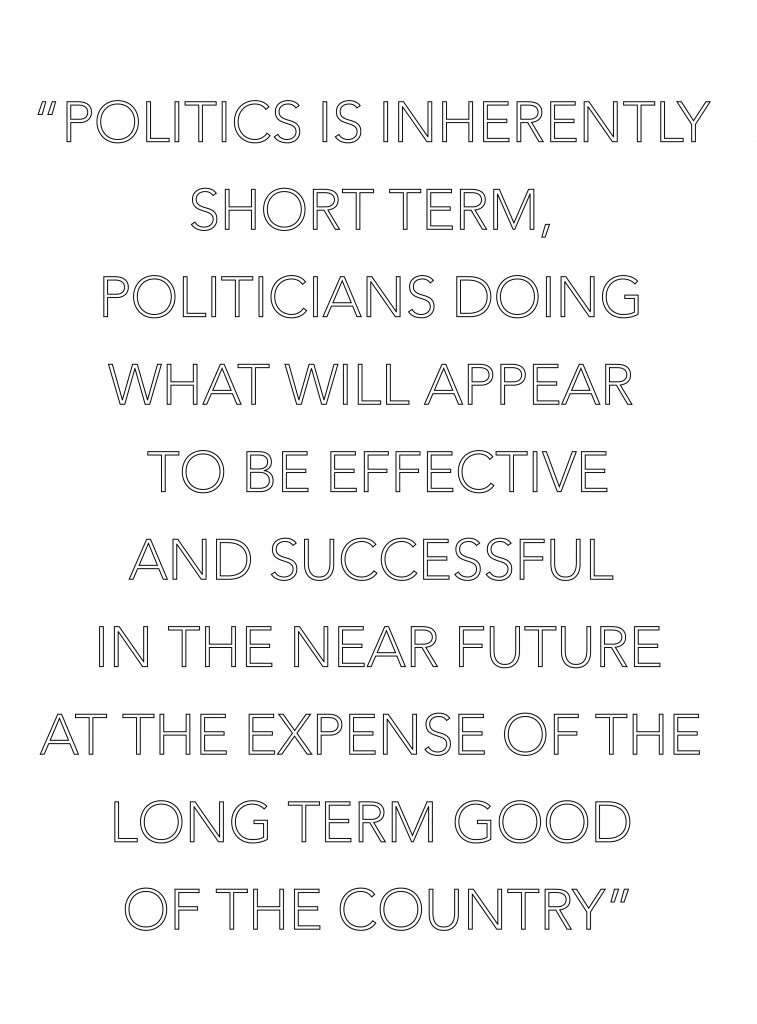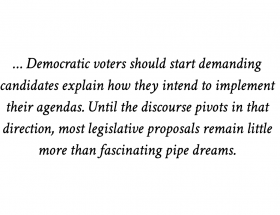If we examine some of our governments’ greatest failures as governing bodies, we can trace their motivations to a focus on their image, appealing to their electorate, and appearing to be successful in comparison to their opposition. Their motivation is rarely a misguided belief that their actions are for the good of the country they have been asked to govern, but rather a belief that they can be run a better re-election campaign, can appeal to their supporters and convince others to start supporting them. It seems unreasonable to completely blame our governments for this – if they fail to get re-elected, any truly beneficial policies they implement may well be undone by the future government.
This attitude has warped the way of thinking by those in power, and it has caused disasters on a scale that cannot be ignored. The Vietnam War, which killed over 50,000 US soldiers, should have been ended many years before 1975, when the US government first became aware that it was a war they could never win. The infamous Pentagon Papers, which among other things revealed that the presidents and defence secretaries who were running the war knew they were sending more and more men to fight simply to appear to be working hard to win, rather than with the belief that by sending more men they could actually achieve. Each president, each government, knew they must pull out of the war but none were willing because they refused to be seen as the president who lost the war. They knew that they would never be re-elected, that their reputation would be ruined, that the thousands of deaths would be seen as a waste because of their decision to end the war. So they continued to haemorrhage soldiers through a war that they couldn’t win. Thousands of lives lost in order to remain in power, in order to remain popular. Louis Menand wrote in The New Yorker that it was the fear of being seen to have lost South-East Asia to communism that forced their hand, that ‘if Southeast Asia was going to be lost to Communism, the preferred that it be on another President’s head’. Of course, the reality was that the governments of Lyndon Johnson and Richard Nixon were lying to the American people – the Pentagon Papers is the proof that turned popular opinion against the war and against the men leading it.

The tragedy of the Vietnam War is an extreme example of this problem, and another less dramatic but perhaps more problematic is the attitude of governments towards the environment. It is seemingly impossible to find a satisfactory answer on why our governments are not passing legislation to protect the environment on the level that is needed at this point. Highly educated, intelligent politicians, when presented with indisputable scientific evidence continue to fail when it comes to legislating on environmental issues. One deeply unsatisfactory yet likely explanation is that environmental issues do not appeal to voters. Certainly, the number of climate change activists is growing, and the number of voters for whom the environment is a leading issue when it comes to voting habits. But it is not enough. The Conservative party won a landslide victory a mere months ago despite running on a platform which placed Brexit at its center and the environment in the background. The Conservative environmental policies were completely unsatisfactory and worse by far than Labour of the Liberal Democrats, with the lowest tree planting goals and the latest zero-emissions target for the UK. Support for the Green party is growing, but it still boasts only one seat in Parliament. If Caroline Lucas is correct when she said that the 2019 election ‘may well have been a Brexit election but it was also the climate election’, then it would appear the public were not voting to support the climate. Environmental policies are not popular, not in the way that can get governments elected, and that surely is each party’s goal.
We live in an age of short-term politics – the UK re-elects every 5 years, the USA every 4 years. And for good reason – to hold the governments accountable, to force them to act responsibly, to maintain the spirit of democracy and give power to the people. Yet in reality it results in governments manipulating voters, acting out of a desire to hold power rather than a desire to serve their country. Politics is inherently short term, politicians doing what will appear to be effective and successful in the near future at the expense of the long term good of the country. The population in general accepts short term policies because we too prioritise our short-term happiness rather than our long-term welfare. This is our failing, however governments have a mandate to serve the population and it is their duty to fulfil this, which they are currently failing to do. We need a radical change in the way politics works to right this, otherwise we are doomed to a cycle of short-term policies and neglect of fundamental but unappealing legislation such as genuinely powerful environmental policies.
photography by Sarah de Surville




